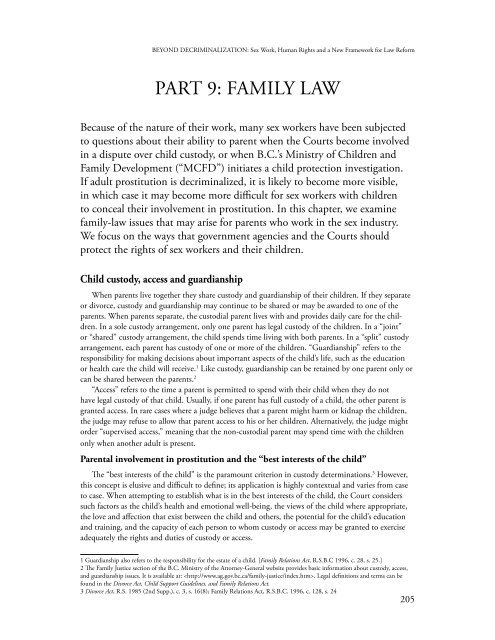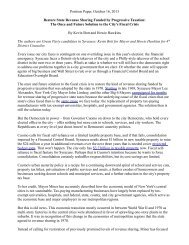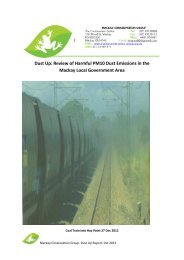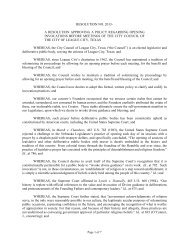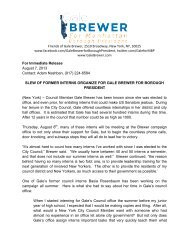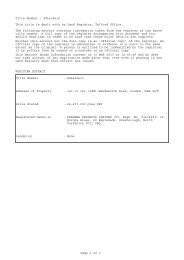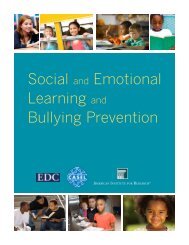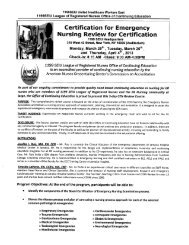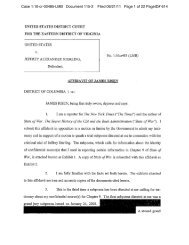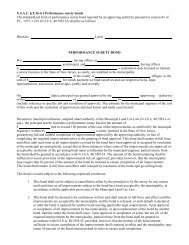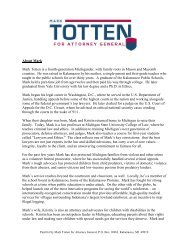Beyond Decriminalization: Sex-work, Human Rights and a New ...
Beyond Decriminalization: Sex-work, Human Rights and a New ...
Beyond Decriminalization: Sex-work, Human Rights and a New ...
- No tags were found...
You also want an ePaper? Increase the reach of your titles
YUMPU automatically turns print PDFs into web optimized ePapers that Google loves.
BEYOND DECRIMINALIZATION: <strong>Sex</strong> Work, <strong>Human</strong> <strong>Rights</strong> <strong>and</strong> a <strong>New</strong> Frame<strong>work</strong> for Law ReformPART 9: FAMILY LAWBecause of the nature of their <strong>work</strong>, many sex <strong>work</strong>ers have been subjectedto questions about their ability to parent when the Courts become involvedin a dispute over child custody, or when B.C.’s Ministry of Children <strong>and</strong>Family Development (“MCFD”) initiates a child protection investigation.If adult prostitution is decriminalized, it is likely to become more visible,in which case it may become more difficult for sex <strong>work</strong>ers with childrento conceal their involvement in prostitution. In this chapter, we examinefamily-law issues that may arise for parents who <strong>work</strong> in the sex industry.We focus on the ways that government agencies <strong>and</strong> the Courts shouldprotect the rights of sex <strong>work</strong>ers <strong>and</strong> their children.Child custody, access <strong>and</strong> guardianshipWhen parents live together they share custody <strong>and</strong> guardianship of their children. If they separateor divorce, custody <strong>and</strong> guardianship may continue to be shared or may be awarded to one of theparents. When parents separate, the custodial parent lives with <strong>and</strong> provides daily care for the children.In a sole custody arrangement, only one parent has legal custody of the children. In a “joint”or “shared” custody arrangement, the child spends time living with both parents. In a “split” custodyarrangement, each parent has custody of one or more of the children. “Guardianship” refers to theresponsibility for making decisions about important aspects of the child’s life, such as the educationor health care the child will receive. Like custody, guardianship can be retained by one parent only orcan be shared between the parents. “Access” refers to the time a parent is permitted to spend with their child when they do nothave legal custody of that child. Usually, if one parent has full custody of a child, the other parent isgranted access. In rare cases where a judge believes that a parent might harm or kidnap the children,the judge may refuse to allow that parent access to his or her children. Alternatively, the judge mightorder “supervised access,” meaning that the non-custodial parent may spend time with the childrenonly when another adult is present.Parental involvement in prostitution <strong>and</strong> the “best interests of the child”The “best interests of the child” is the paramount criterion in custody determinations. However,this concept is elusive <strong>and</strong> difficult to define; its application is highly contextual <strong>and</strong> varies from caseto case. When attempting to establish what is in the best interests of the child, the Court considerssuch factors as the child’s health <strong>and</strong> emotional well-being, the views of the child where appropriate,the love <strong>and</strong> affection that exist between the child <strong>and</strong> others, the potential for the child’s education<strong>and</strong> training, <strong>and</strong> the capacity of each person to whom custody or access may be granted to exerciseadequately the rights <strong>and</strong> duties of custody or access. Guardianship also refers to the responsibility for the estate of a child. [Family Relations Act, R.S.B.C 1996, c. 28, s. 25.] The Family Justice section of the B.C. Ministry of the Attorney-General website provides basic information about custody, access,<strong>and</strong> guardianship issues. It is available at: . Legal definitions <strong>and</strong> terms can befound in the Divorce Act, Child Support Guidelines, <strong>and</strong> Family Relations Act. Divorce Act, R.S. 1985 (2nd Supp.), c. 3, s. 16(8); Family Relations Act, R.S.B.C. 1996, c. 128, s. 24205


